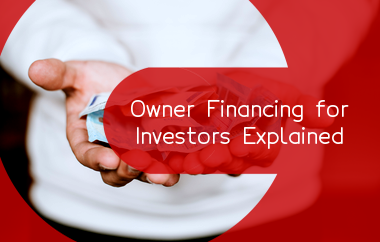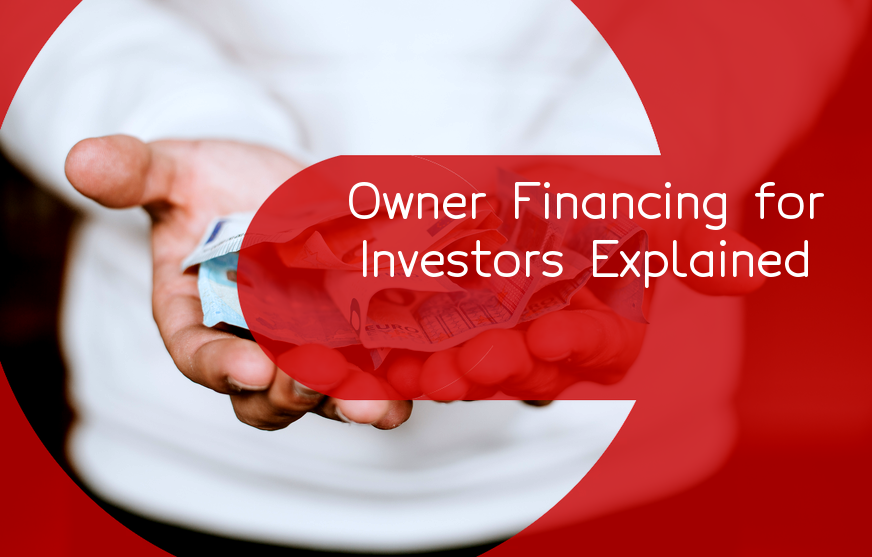Owner financing is an arrangement where the seller of a property agrees to provide financing to the buyer, instead of the buyer obtaining a loan from a traditional lender. This means that the seller of the property becomes the lender and holds the mortgage. The terms of the financing, including interest rates, payment schedules, and collateral, are negotiated between the buyer and seller and are often more flexible than traditional bank loans. Owner financing is also known as seller-financing or seller carry-back.
What is owner financing
Owner financing, also known as seller financing, is a real estate arrangement where the seller of a property agrees to finance all or part of a purchase for a buyer. In this arrangement, the buyer makes payments (usually in the form of monthly installments) directly to the seller, rather than obtaining a traditional mortgage from a third-party lender such as a bank or a credit union.
The terms of owner financing are typically negotiable and can include interest rates, payment schedules, and other conditions that may be more favorable to the buyer than a traditional mortgage. The seller may require a down payment from the buyer, but the exact amount is also negotiable.
Overall, owner financing can provide a viable option for buyers who may not be able to qualify for a traditional mortgage, or who are looking for more flexible terms. For sellers, it can be a way to attract more buyers, expedite the sale of a property, and generate a steady stream of income for themselves.
How Owner Financing Works
Owner financing is a type of home purchase where the owner of a property acts as the bank and provides financing for the buyer. Rather than the buyer obtaining a mortgage from a bank or other financial institution, they make payments directly to the seller.
Under owner financing, the buyer typically makes a down payment and signs a contract with the seller outlining the terms of the agreement, including the purchase price, interest rate, and repayment schedule. The buyer then makes regular payments to the seller, who retains the title to the property until the buyer has fully paid off the loan.
This type of financing can be beneficial for both parties. For the seller, it allows them to sell their property more quickly and potentially earn a higher return on their investment through the interest rate charged to the buyer. For the buyer, it can be an alternative option for obtaining financing if they have difficulty qualifying for a traditional mortgage.
However, there are also risks involved with owner financing. For the buyer, if they default on payments, they risk losing the property. For the seller, they may have difficulty enforcing the agreement in the event of default or foreclosure. It is important for both parties to thoroughly understand the terms and risks of owner financing and consult with a legal professional before entering into such an agreement.
Benefits of Owner Financing for Sellers
Here are some of the benefits:
- 1. More buyers: Owner financing can attract more buyers who may not be able to secure financing through traditional methods, such as a bank loan. This increases the pool of potential buyers and can speed up the sale.
- 2. Faster closing: Since the buyer and seller don't have to go through the traditional loan process, owner financing can lead to a quicker closing time.
- 3. Higher sale price: With owner financing, sellers may be able to negotiate a higher sale price since they are offering more financing options.
- 4. Steady income: The seller can receive regular payments from the buyer, which can provide a steady income stream.
- 5. Tax benefits: The seller may be able to take advantage of certain tax benefits, such as deferring capital gains taxes.
- 6. Flexibility: Owner financing allows for more negotiating power and flexibility in the terms of the sale agreement.
Overall, owner financing can be a win-win situation for both parties involved in the sale transaction.
Benefits of Owner Financing for Buyers
I can provide general information about the benefits of owner financing for buyers as follows:
Owner financing is a type of arrangement between a buyer and seller, whereby the seller acts as the lender and provides financing to the buyer. This type of financing is especially beneficial for buyers who may not be able to secure a conventional loan or cannot provide a large down payment. Some of the benefits of owner financing for buyers are:
- 1Easier Qualification: One of the major benefits of owner financing is that it's easier to qualify for than a traditional mortgage. Buyers with poor credit or low income can now get access to financing that they might not have been approved for under traditional mortgage parameters.
- 2Flexible Terms: Owner financing gives buyers more flexibility in terms of negotiating the terms of the loan. This can include the interest rate, payment schedule, down payment amount, and other terms that may suit the individual needs of the buyer.
- 3Faster Process: Owner financing typically involves fewer steps and less paperwork than a traditional mortgage, making it a faster process. Buyers can often close the loan and move into their home sooner, providing them with a greater level of convenience.
- 4No Qualification Fees: Unlike traditional mortgage loans, owner financing often does not require qualification fees, such as loan application fees, appraisal fees, or closing costs. This can save buyers a significant amount of money upfront.
- 5More Control: When using owner financing to purchase a property, buyers have more control over the deal without having to deal with a bank or other financial institution. This can give buyers more confidence and peace of mind in their purchase.
Overall, owner financing can offer several benefits to buyers, including easier qualification, flexible terms, faster processing, no qualification fees, and more control over the purchase.
The Risks of Owner Financing for Sellers
Owner financing is a real estate transaction process where the seller of the property provides financing to the buyer instead of the buyer seeking a loan from a traditional lending institution. While owner financing offers several benefits to the seller such as providing a considerable source of investment income, there are also potential risks associated with it. Some of the major risks of owner financing for sellers are:
- 1Default risk: The seller risks losing the property and any unpaid balance of the purchase price if the buyer defaults on the payments.
- 2Legal risk: Depending on the legal requirements of the state, owner financing can be a complicated process, and the seller may be exposed to potential legal risks if not done correctly.
- 3Market risk: If the property market declines, the buyer may not be able to resell the property, and they may default on the payments, increasing the seller's risk.
- 4Maintenance risk: In most cases, the seller will be responsible for any repairs and maintenance required on the property during the financing period, which can be a significant expense.
- 5Interest rate risk: Interest rates can fluctuate, and the seller risks losing money if they financed the property at a low-interest rate and the rates go up.
- 6Tax risk: Depending on the seller's tax situation, they may be at risk of paying more taxes than they would have if they sold the property outright.
In summary, while owner financing can be a mutually beneficial arrangement for both the buyer and seller, it is not without risks. Therefore, it is essential to weigh the pros and cons before making any final decision. It may be helpful to consult a real estate attorney or financial advisor for guidance on how to protect yourself from risks and make a financially sound decision.
Just one more thing: if you liked the article, please like us on social media and share this article with friends.



